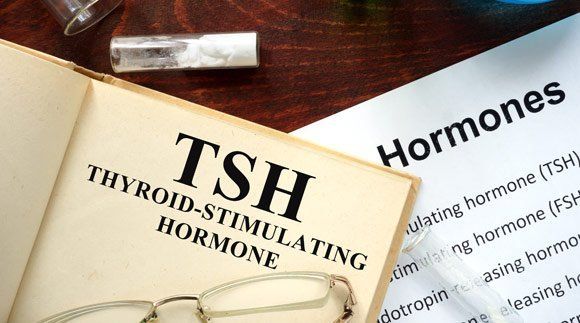Adrenal Fatigue Syndrome:
And Why You Haven't Heard Of It

Do you ever feel like the hardest part of your day is getting out of bed in the morning, no matter how much sleep you have had? Ever catch yourself dozing off at work? Is your brain in a fog and unable to focus on tasks? Like many others, you are probably clueless as to why you continue to experience this unrelenting fatigue, and the only probable explanation you can think of is that you are not drinking enough coffee.
The mainstream medical community doesn’t recognize Adrenal Fatigue as a real condition; a systematic review published online by BMC Endocrine Disorders in August 2016 stated “This systematic review proves that there is no substantiation that "adrenal fatigue" is an actual medical condition. Therefore, adrenal fatigue is still a myth.”
If that is so why are there so many articles about it online, so many books written about it, so many websites dedicated to it and why is Doctor Oz talking about it?
Let’s back up a minute, they said “medical condition”, it can’t be a medical condition unless there is a blood test or other form of testing to diagnose it and most importantly a prescription medication to treat it.
If you are one of the many people feeling chronically tired and getting no help from your Doctor then please read on.
The adrenal glands are small glands located on top of the kidneys, perhaps best known for the production of Adrenaline for the fight or flight response, they produce many more hormones that help the body regulate every major physiological process in the body including metabolism, blood sugar balance, immune competence and inflammation.
Adrenal fatigue is related to the deficiency of one particular hormone called cortisol. Cortisol is your daily energy hormone, it is a long acting hormone and you get lots of it in the morning when the sun comes up, this breaks your sleep cycle and you wake up. It begins to fall off around 5.30 pm allowing serotonin to rise, this is your relaxing and digesting hormone (just in time for dinner) and this will covert to melatonin your sleeping hormone. Cortisol is also your stress coping hormone and it helps you to adapt to stressful situations and it will convert to cortisone to dampen inflammation.
If a stressful situation continues the body will increase cortisol production, if it goes on too long the adrenal glands will fail to produce enough cortisol to support your energy and help you cope with stress. One of my patients developed adrenal fatigue after a 12 month period that included caring for a sick relative, a death in the family, extra hours at work, about of the flu, and a broken wrist.
Symptoms can include any or all of the following:
• Morning fatigue. You don’t really wake up until 10 a.m., even if you’ve been up since 7 a.m.
• Afternoon “low” (feelings of sleepiness or clouded thinking) from 2 to 4 p.m.
• A burst of energy at 6 p.m. when you finally feel better from your afternoon lull
• Sleepiness around 9p.m. to 10 p.m. However, you resist going to sleep
• A “second wind” at 11 p.m. that lasts until about 1 a.m., when you finally do go to sleep
• Waking at 4am and returning to sleep at 6.00am
• Cravings for foods high in salt and fats
• Chronic low blood pressure
• Sensitivity to cold and feeling chilled
• Increased PMS or menopausal symptoms
• Mild depression
• Mood swings
• Mental fog
• Memory problems
• Lack of energy and feeling rundown
• A decreased ability to handle stress, anxiety or panic attacks
• A decreased ability to recover from illness
• Muscular weakness
• Increased food allergies
• Light-headedness when getting up from a sitting or lying down position
• Decreased sex drive
• Frequent sighing
• Inability to handle carbohydrates unless they’re combined with fats and protein
• You crave sugar
In the beginning you may experience highs and lows in energy over the day and be wakeful at night but if the condition continues for many months or years you may be flat and tired all day, napping in the afternoon and sleeping soundly all night only to drag yourself out of bed feeling like you haven’t slept a wink.
Your Doctor might test your iron levels and thyroid function and some people may get a B12 injection but mostly you will be offered a lot of excuses, antidepressants, sleeping pills and/ or Hormone Replacement Therapy.
So how is it that we can know so much about a condition that Doctors say doesn’t exist? In 2001 a Naturopathic Doctor in America Dr. James L. Wilson D.C., N.D., Ph.D., released a book called “Adrenal Fatigue: The 21st Century Stress Syndrome” and has been lecturing to physicians and the general public on the subject for 15 years.
If you are still with me and have ticked off your symptoms and suspect that you are suffering from a real condition and it’s not “all in your head” after all, no doubt you would like to know what to do about it.
If you can’t take 6 months off to go and lay under a palm tree on a pacific island then your next best option is a tailored Naturopathic approach. This starts with food selection (notice I didn’t say “diet”); taking out foods that stress the adrenal glands and the immune system like sugar and processed foods, and choosing to eat more nutritionally dense foods.
Herbal medicine, as liquids, tablets or capsules along with nutritional medicines, especially vitamins, minerals and amino acids will tone up the adrenal glands and get them running on their own steam in a matter of a few months for most people.
For more information contact Linda Lowen







